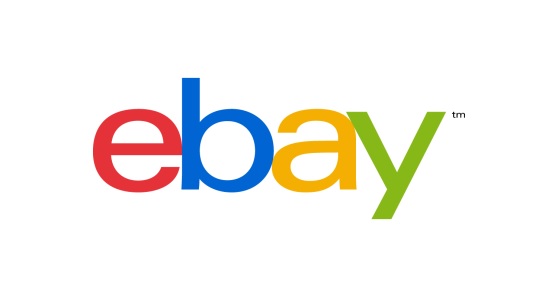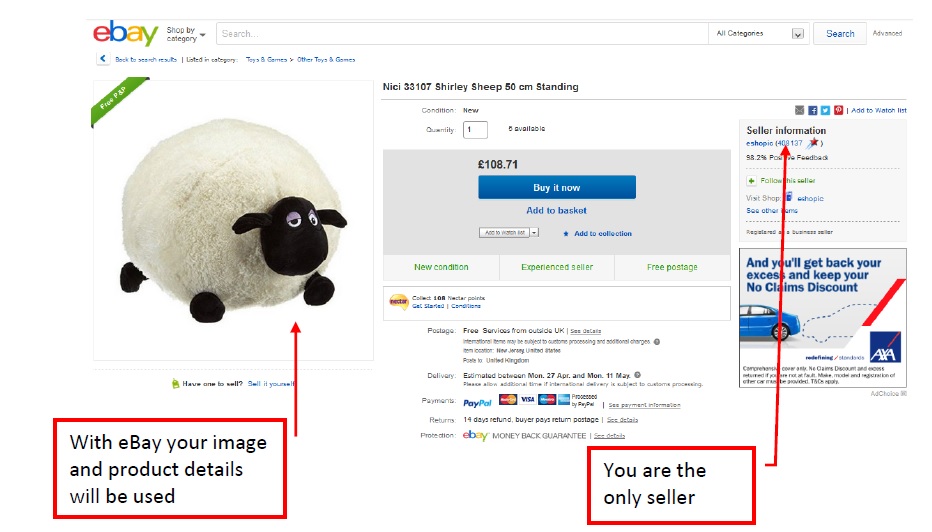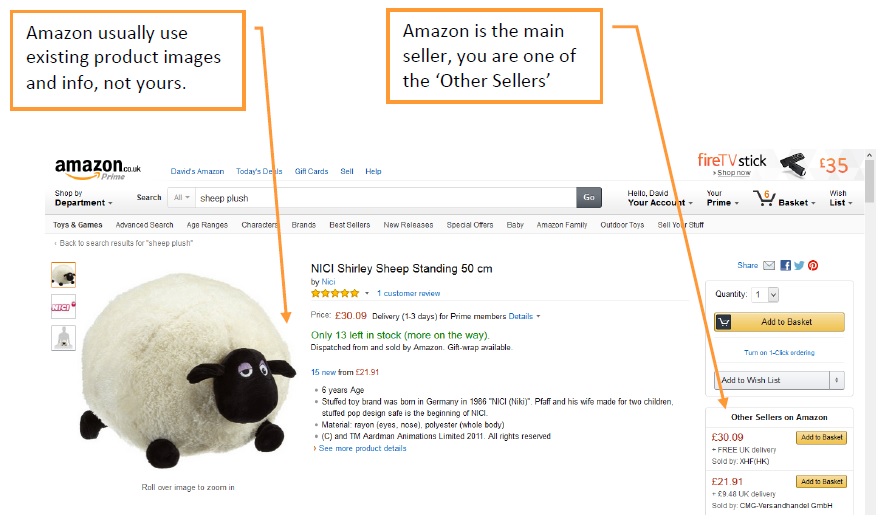Retailers new to selling on marketplaces may think eBay and Amazon are the same. They in fact are very different.
This helpsheet explains how some of these differences can impact on you when listing products and selling.
Two Different Business Models
EBay has evolved from an auction site. The company’s original model merely connected sellers to buyers, leaving the logistics of payment and shipment primarily with those two parties. EBay does not directly sell anything. When you add a product it creates a unique listing for that item. When the seller buys it they are doing so from you directly.

Amazon began in a garage as an online retailer, with its own stock of products (mainly books) that were stored and packaged. Today, Amazon is a huge retailer with massive warehouses of products that it sells directly to online customers. Though Amazon has since added a network of “sellers” which ship from their own facilities, the bulk of Amazon’s offerings are still in-house.

When you list a product on Amazon it does not usually create a unique listing. It tries to match the product with one already in its catalogue. If successful, you will be listed as an additional seller of that item.

[su_divider]
Differences in Listing Products
With eBay a seller can list almost any kind of item, anything from antiques to cars, books to sporting goods. Even if the item does not fall into traditional categories, eBay has an ‘Everything Else’ category, which comprises of, well, everything else.
Comparatively, Amazon has a more restricted and stringent process. To successfully list a product on Amazon you usually need to match the item in your stock to the item on Amazon. If Amazon cannot find an exact match they will return an error. Connect will show you the Amazon error message* so you can manage it.
Amazon does NOT want lots of the same product listed as slightly different items. It wants buyers to be able to see just one product, nice and clear, with lots of sellers to choose from offering the best prices.
Amazon therefore can be much more fiddly to list on successfully. It really depends on our products.
* Note: IR does not provide support on these error messages as they are from Amazon directly. Amazon carries information on these errors in areas like this: http://www.amazon.co.uk/gp/help/customer/display.html?nodeId=200209880


[su_divider]
Differences in Payments
From the outset, eBay played a minimal role in how buyers paid for their purchases. Though eBay today owns PayPal, the online pay service, it still effectively does little more than provide buyers and sellers the tools to easily send each other money.
Amazon, by contrast, facilitates payments through its checkout, even those payments destined for third-party resellers.
[su_divider]
Other Interests
EBay is pretty straightforward in that it has an online marketplace for buyers and sellers to do business. Amazon has that too, but it also has a major investment in the digital publishing industry with its exclusive Kindle e-book reader and digital media.
Furthermore, Amazon is in the fulfilment business, including packing and shipping products sold either by Amazon itself or third-party sellers. EBay, however, doesn’t have such a program, instead leaving packing and shipping entirely up to eBay sellers.
[su_divider]
